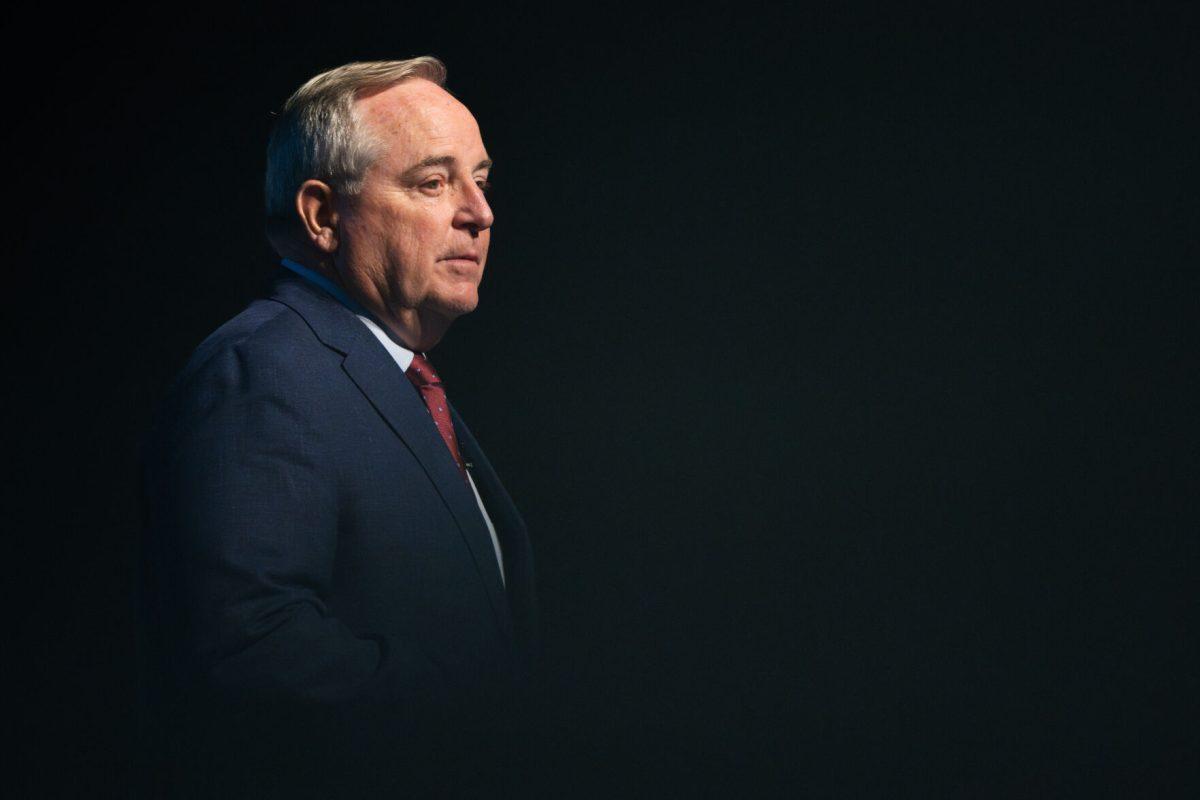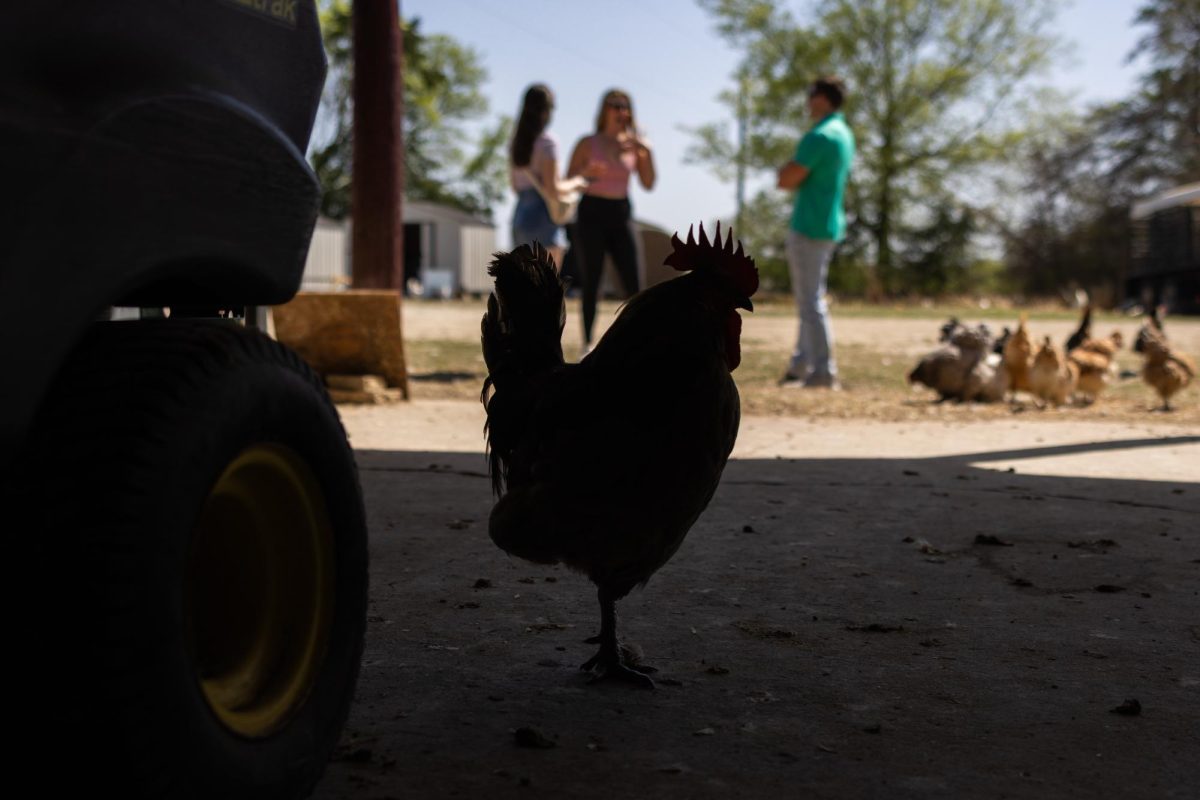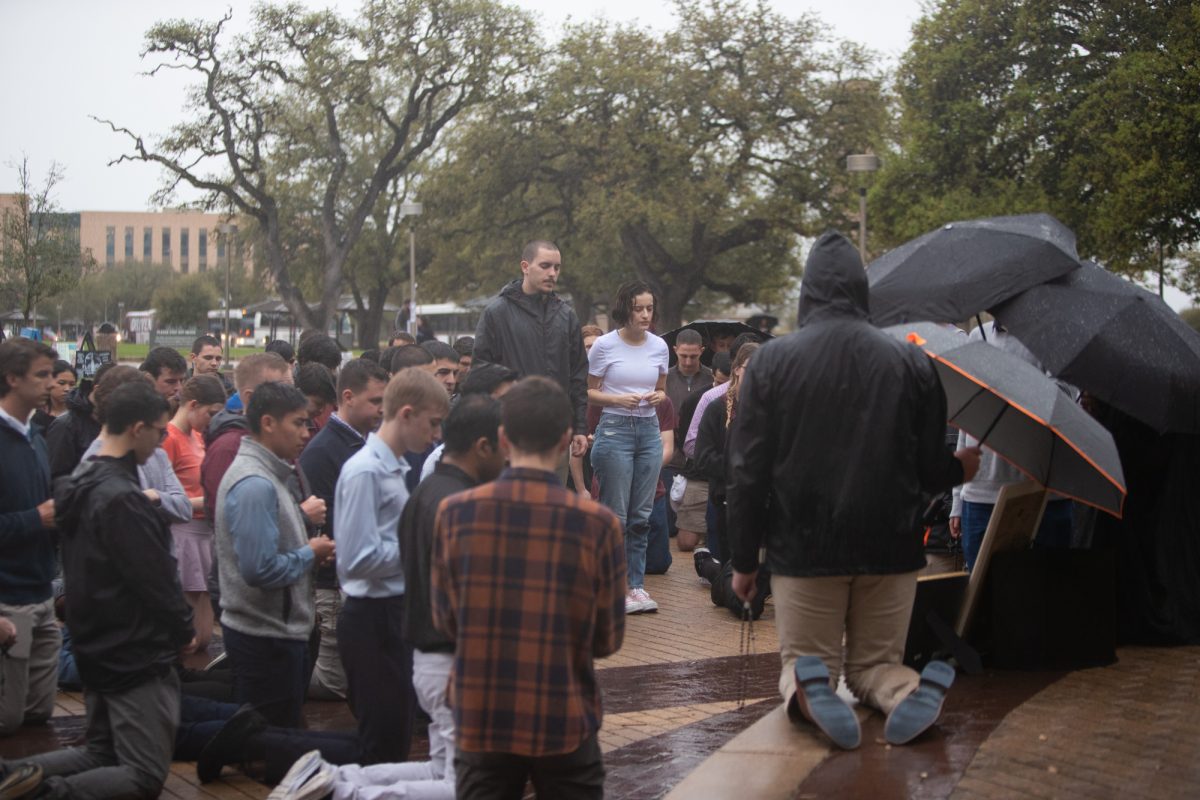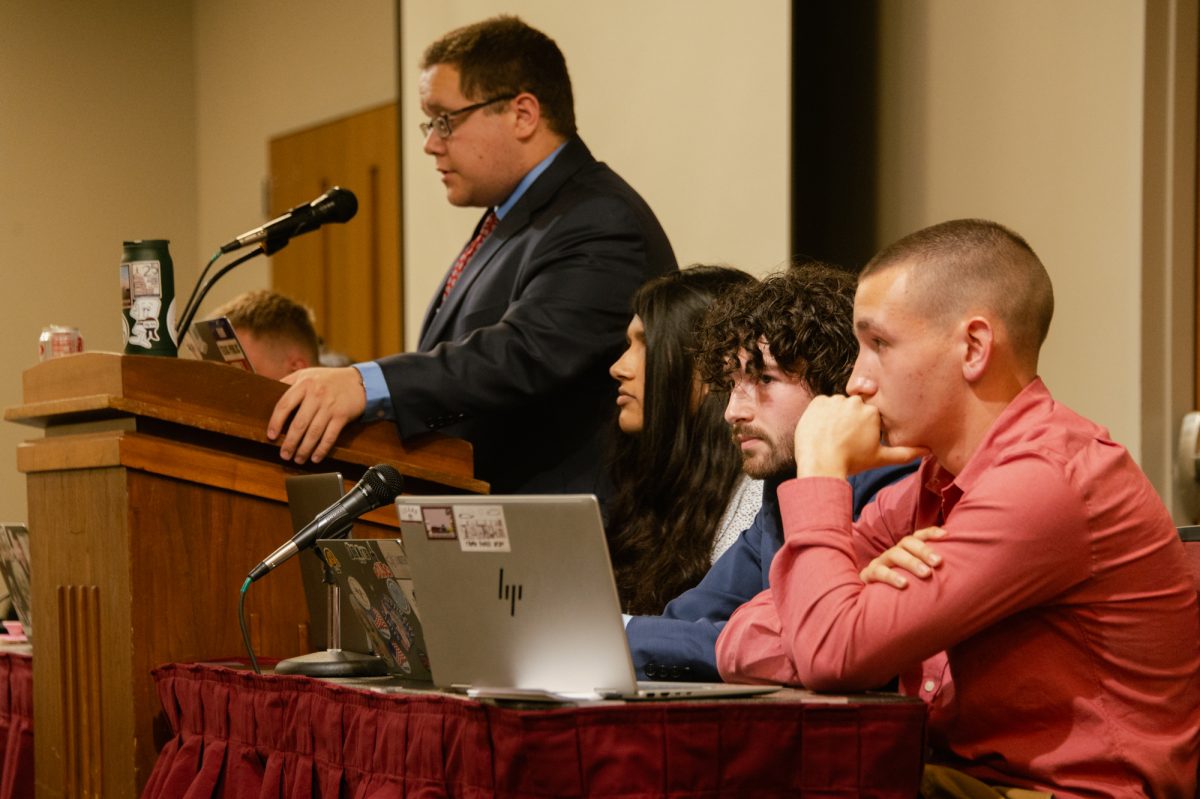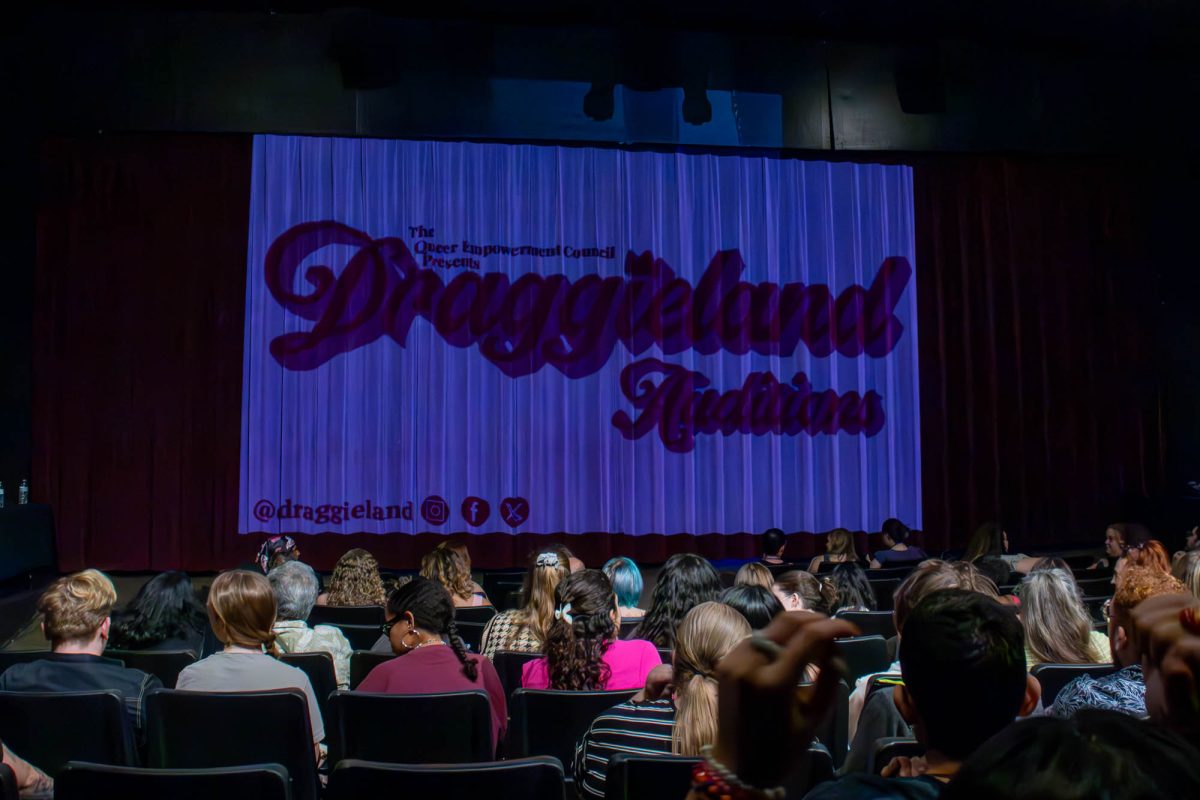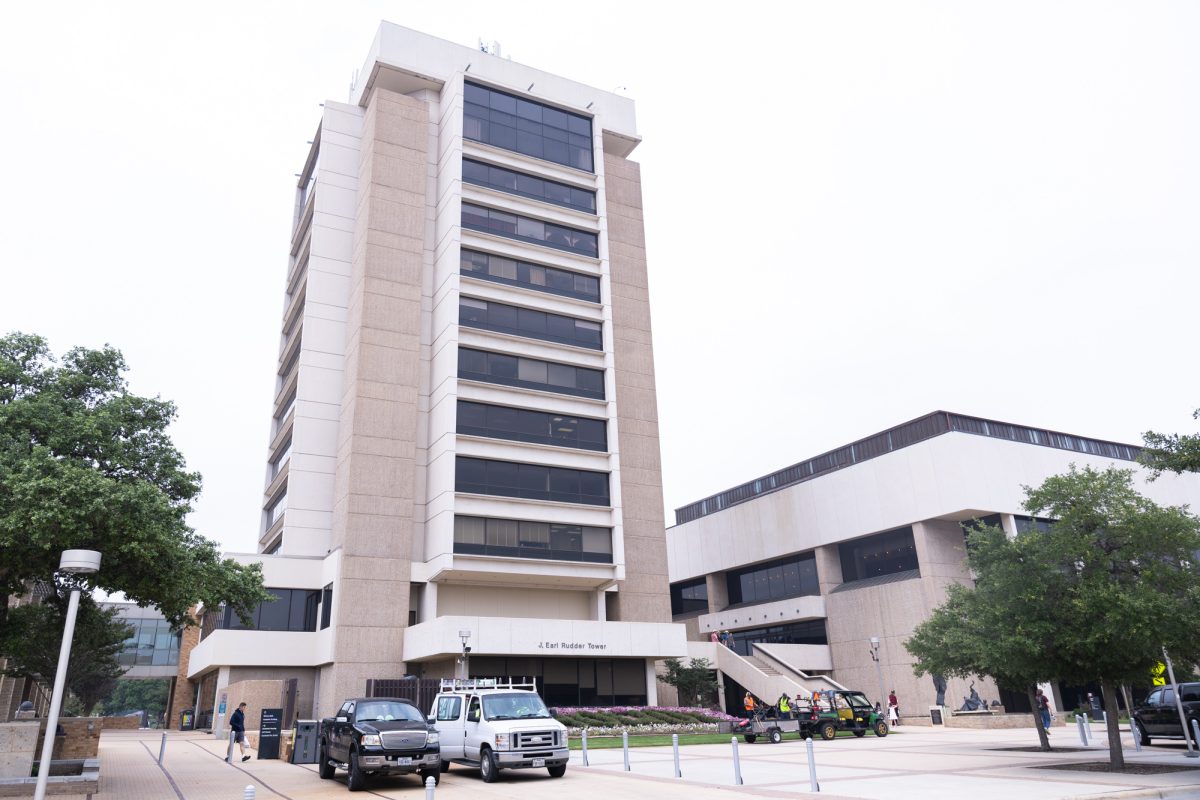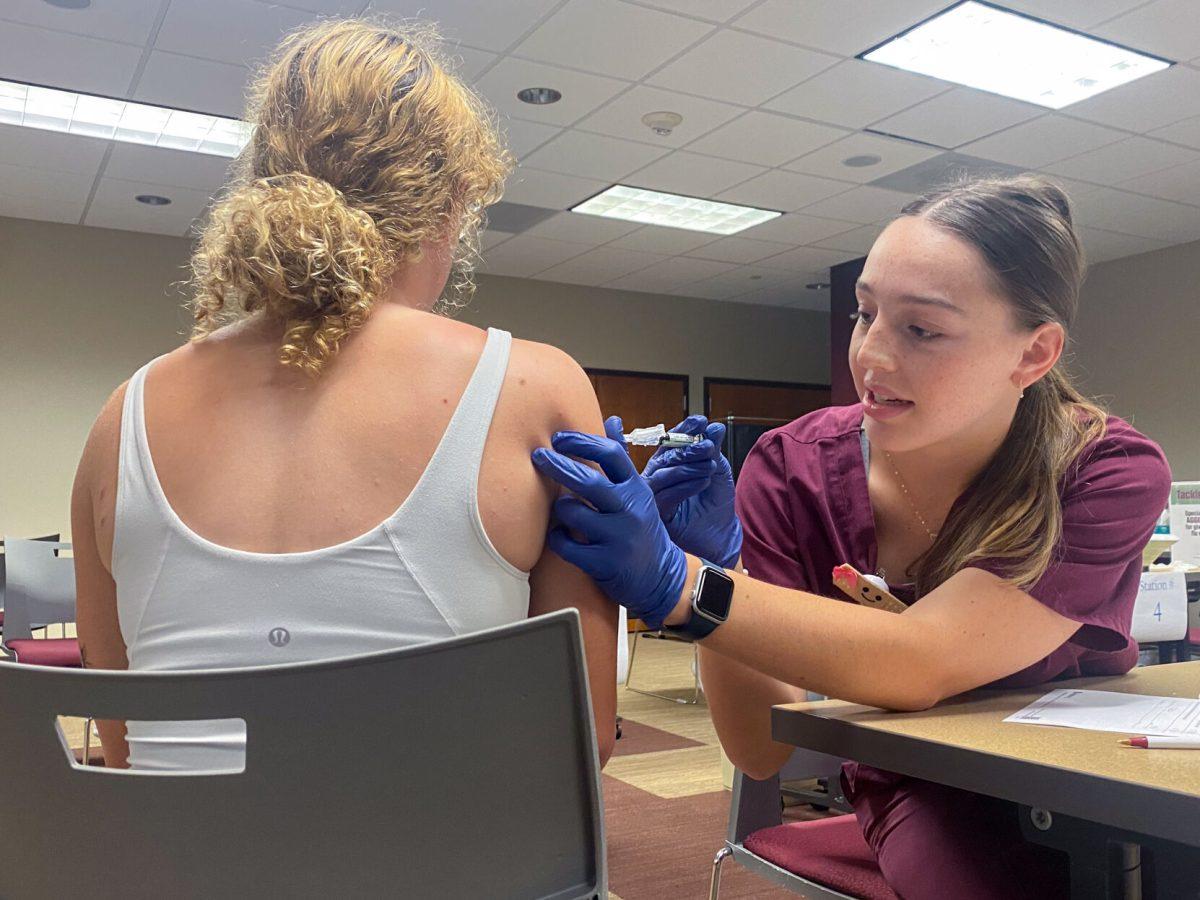Texas A&M administrators are continuing their rollout of the Citizenship and Service Initiative, a new approach to instilling civic values and responsibilities into A&M students.
The initiative, led by President Mark A. Welsh III and Director of Strategic Initiatives Brigadier General (Ret.) Kim Field, focuses on bolstering Aggie Core Values and civic engagement within students, navigating differences in public policy and media and teaching constitution-based civics.
Welsh first outlined such an initiative in his State of the University Address in November of 2023. Field later joined the Office of the President last year as the director of the initiative.
Although much of the plan remains conceptual and has yet to see widespread implementation, the Office of the President’s goals are clear: increase student reflection, incentivize engagement with the program and close gaps in civic education.
“I know that I have alumni, but most importantly student body, staff and faculty right here on my watch, who are fantastic Aggies,” Field said. “We want to make sure that we are also presenting these Aggies to the whole country in spirit of the national reputation that A&M should have because of its values, its traditions and the excellence of the scholarship that is done here.”
The minds behind the Citizenship and Service Initiative emphasize its first framework pillar: instilling Aggie Core Values. As the number of A&M students and the population of Bryan-College Station has surged over the past 10 years, administrators and student leaders are focused on keeping the university true to its traditions.
“One of the phrases that we’ve been falling back on is ‘enrich the whole trajectory,’” student coordinator for strategic initiatives and biomedical sciences senior Maddox Lindor said. “We already believe that there’s a lot of good things at A&M taking place. We have those traditions, Core Values and leadership and service opportunities that A&M students have been taking part in for decades, but it’s at a point where, as the school is growing large, it’s hard to get all of those students engaged.”
Structural changes to existing Hullabaloo U courses, first-year experience courses aimed to acclimate freshman students to A&M, and POLS 206 and 207 have been suggested to include more widespread discussions on civic responsibilities. Currently, the Office of the President plans to collaborate with the Bush School of Government to create guidelines on how A&M’s colleges can incorporate these ideas with existing curricula.
At its core, coordinators and directors highlight the importance of student involvement, input and participation as the initiative comes to fruition.
“We can’t do this without their input,” student coordinator for strategic initiatives and university studies in society, ethics and law junior Kathleen Parks said. “It’s not going to work if the administration just hands down another requirement for students … so we’ve kept student feedback at the heart of the discussion.”
Field and her team also plan on examining the possibility of implementing service-learning, an approach in which students apply classroom learning to address the needs of their local communities, often through community service. Other ideas include the revival of Aggie Agora, a program that brought lecturers and students together to discuss difficult ideas and topics before it ran out of funding.
“We want students to understand they aren’t just coming here to become a doctor, to become a lawyer, to become an engineer,” Field said. “They’re going to do all that, yes, that’s what they’re paying for, but in the context of solving the problems of the community, the state and the nation as a good citizen.”




